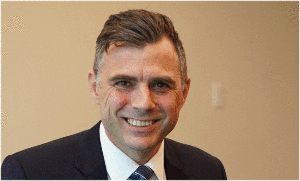
The OCR got another determined shove upwards on Wednesday, rising 50 basis points to reach 3.5%.
It was the fifth such rise and it could have been even greater: some members of the Monetary Policy Committee argued for a 75 point rise before the committee agreed “on balance” to settle at 50.
But even that smaller option has got one economist very worried.
“We are becoming increasingly wary of the consequences such (monetary) tightening will bring,” wrote Jarrod Kerr of Kiwibank.
“The cost of home ownership is increasing fast.”
Kerr worried at mortgage rates more than doubling in a little over a year, adding $24,000 to the cost of servicing an $800,000 mortgage.
But Kerr appeared to grimace with acceptance of all this pressure on people, like a surgeon amputating a leg to save a life.
“There will be a profound impact on discretionary spending – by RBNZ design,” he wrote.
“Unfortunately, the RBNZ needs to see this pain in households before they are confident they’ll beat inflation back down to 2%.”
Kerr also noted the RBNZ did not have total control in this situation, saying half of New Zealand 's inflation came from offshore.
ASB's chief economist Nick Tuffley was unsurprised by the move, saying the RBNZ wanted to get the OCR up to its peak quickly rather than drag out the whole process and risk even more monetary tightening later.
“We continue to expect (another) 50bp increase in November, followed by a 25bp lift in February to 4.25%,” he wrote.
“At this point, inflation pressures are acute, and activity – though muted – appears to be increasing.”
Michael Gordon of Westpac said the 50 point rise was expected and there would be more to come.
He noted the repeated use of terms like “resolute” and “at pace” by the RBNZ to describe its own behaviour, and said the bank emphasised overheated demand and a very tight labour market in the New Zealand economy.
Gordon also noted the debate between the 50 point and the 75 point factions in the Monetary Policy Committee.
“This suggests the RBNZ is now eyeing a considerably higher peak than the 4.1% peak from its August projections,” Gordon wrote. His own projected peak is 4.5% by next February.
In its own statement the RBNZ Monetary Policy Committee argued that while headline inflation is easing internationally, the core measures of inflation have proved persistent. And domestically, there was more strength in consumption than was previously expected.
But at the same time debt servicing costs were increasing and this made people’s homes susceptible to monetary tightening.
“Members noted that household debt servicing costs were rising ….and this was an important channel of monetary policy transmission.”




Comments
No comments yet.